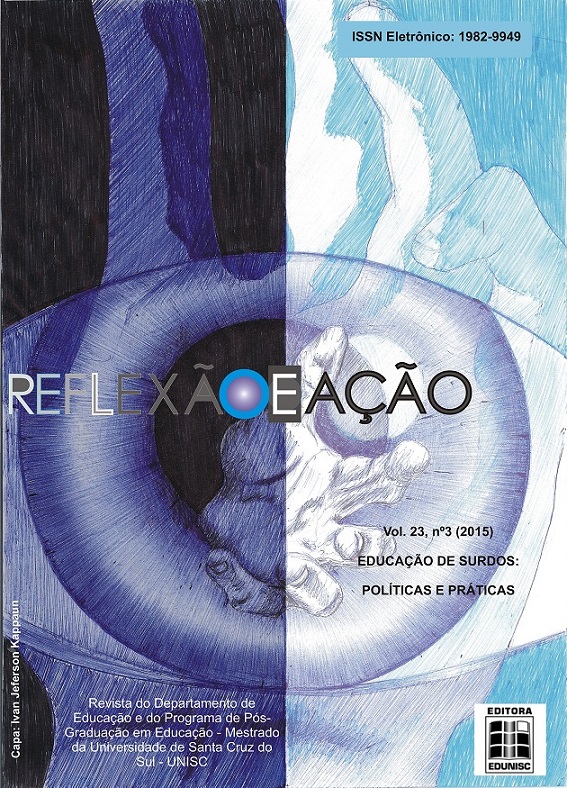NARRATIVE OF THE LITERARY EDUCATION IN BILINGUAL EDUCATIONAL PRACTICE WITH DEAF STUDENTS
DOI:
https://doi.org/10.17058/rea.v23i3.6371Keywords:
Literary Education, Bilingualism, Deaf Studies, Cultural Studies in EducationAbstract
The aim of this paper is to present analysis of how to set up a teaching practice based on a proposal for bilingual literary education, held at a school for the deaf in Porto Alegre. The research is part of the field of Cultural Studies in Education and Deaf Studies, that carry out their investigations on the centrality that culture takes on global training processes and social change as well as the constitutive role in the formation of identities and subjectivities. This proposal is justified by the importance of analysis of narratives of teaching practices involving the teaching of school subjects, in culturally articulated manner, so that the main theme chosen permeates the language, experiences and content. The empirical data used in the analysis is based on the record of the activities conducted during the period of teaching practice, setting a total of sixteen videos. The analysis of materials enabled the construction of three categories developed from the peculiarities of the process of telling and retelling stories in a bilingual context surrounding the Brazilian Sign Language (Libras) and Portuguese. The first category explains the experience of telling and retelling stories in a bilingual context, emphasizing the link between reading, writing and translation. The second category deals with the reading of images held by students, especially the perceptions, judgments and expressions produced; the third category reflects on the construction of the narrative by the student. From this research, it is possible to show that the articulated literature to the proposed bilingual education helps to establish connections between languages and cultures as well as between the proposed school subjects.Downloads
Downloads
Published
How to Cite
Issue
Section
License
The submission of originals to this journal implies on the transference, by the author(s), of the printed and digital publishing rights. The author´s rights to the published articles are the author´s, the journal has the rights over the first publication. The author(s) can only use the same results in other publications, indicating clearly that this journal was the original publisher. Since we are an open access journal, the free use of articles is permitted for educational and scientific applications, as long as they inform the source according with the CC-BY license from Creative Commons.


